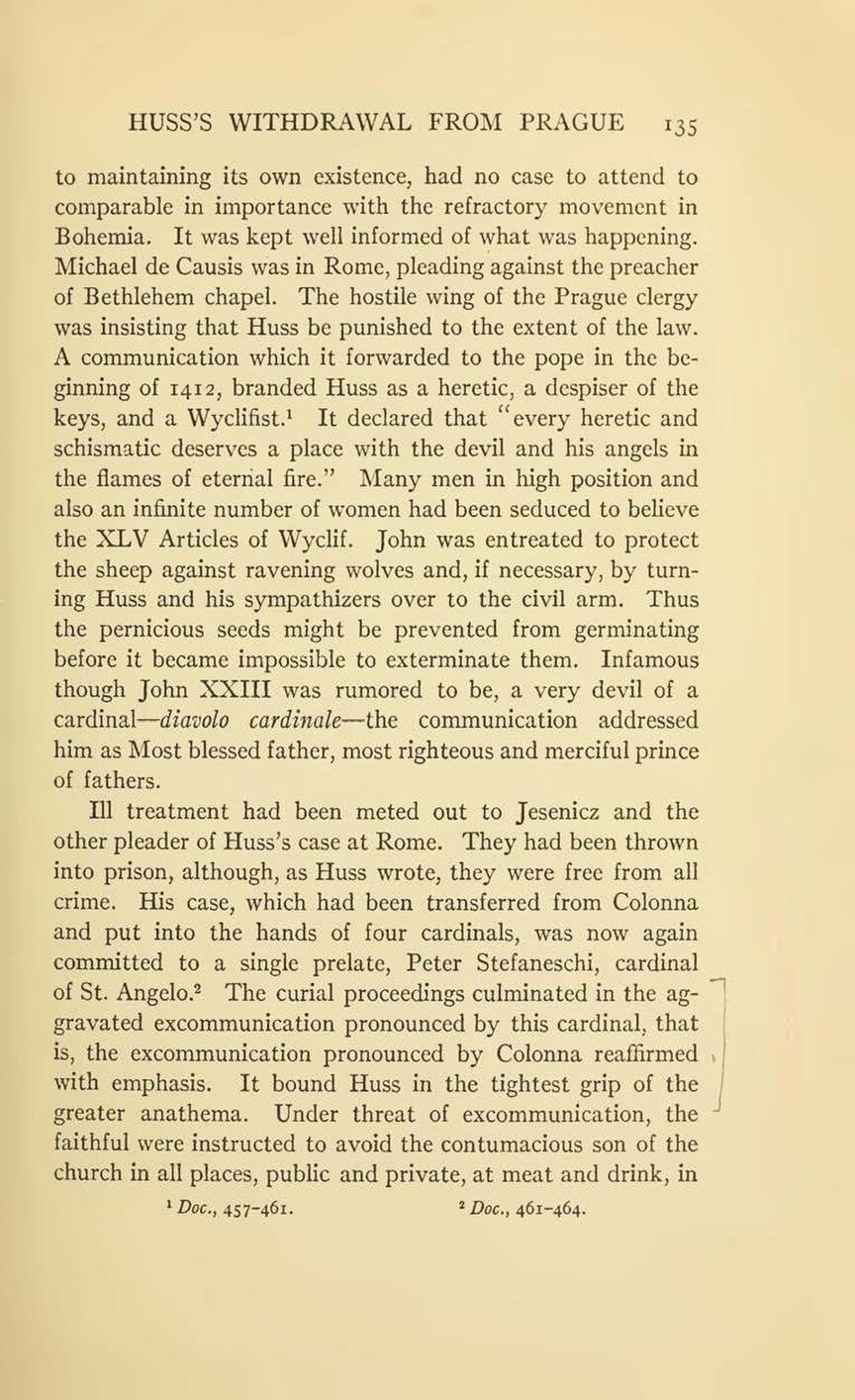to maintaining its own existence, had no case to attend to comparable in importance with the refractory movement in Bohemia. It was kept well informed of what was happening. Michael de Causis was in Rome, pleading against the preacher of Bethlehem chapel. The hostile wing of the Prague clergy was insisting that Huss be punished to the extent of the law. A communication which it forwarded to the pope in the beginning of 1412, branded Huss as a heretic, a despiser of the keys, and a Wyclifist.[1] It declared that “every heretic and schismatic deserves a place with the devil and his angels in the flames of eternal fire.” Many men in high position and also an infinite number of women had been seduced to believe the XLV Articles of Wyclif. John was entreated to protect the sheep against ravening wolves and, if necessary, by turning Huss and his sympathizers over to the civil arm. Thus the pernicious seeds might be prevented from germinating before it became impossible to exterminate them. Infamous though John XXIII was rumored to be, a very devil of a cardinal—diavolo cardinale—the communication addressed him as Most blessed father, most righteous and merciful prince of fathers.
Ill treatment had been meted out to Jesenicz and the other pleader of Huss’s case at Rome. They had been thrown into prison, although, as Huss wrote, they were free from all crime. His case, which had been transferred from Colonna and put into the hands of four cardinals, was now again committed to a single prelate, Peter Stefaneschi, cardinal of St. Angelo.[2] The curial proceedings culminated in the aggravated excommunication pronounced by this cardinal, that is, the excommunication pronounced by Colonna reaffirmed with emphasis. It bound Huss in the tightest grip of the greater anathema. Under threat of excommunication, the faithful were instructed to avoid the contumacious son of the church in all places, public and private, at meat and drink, in
